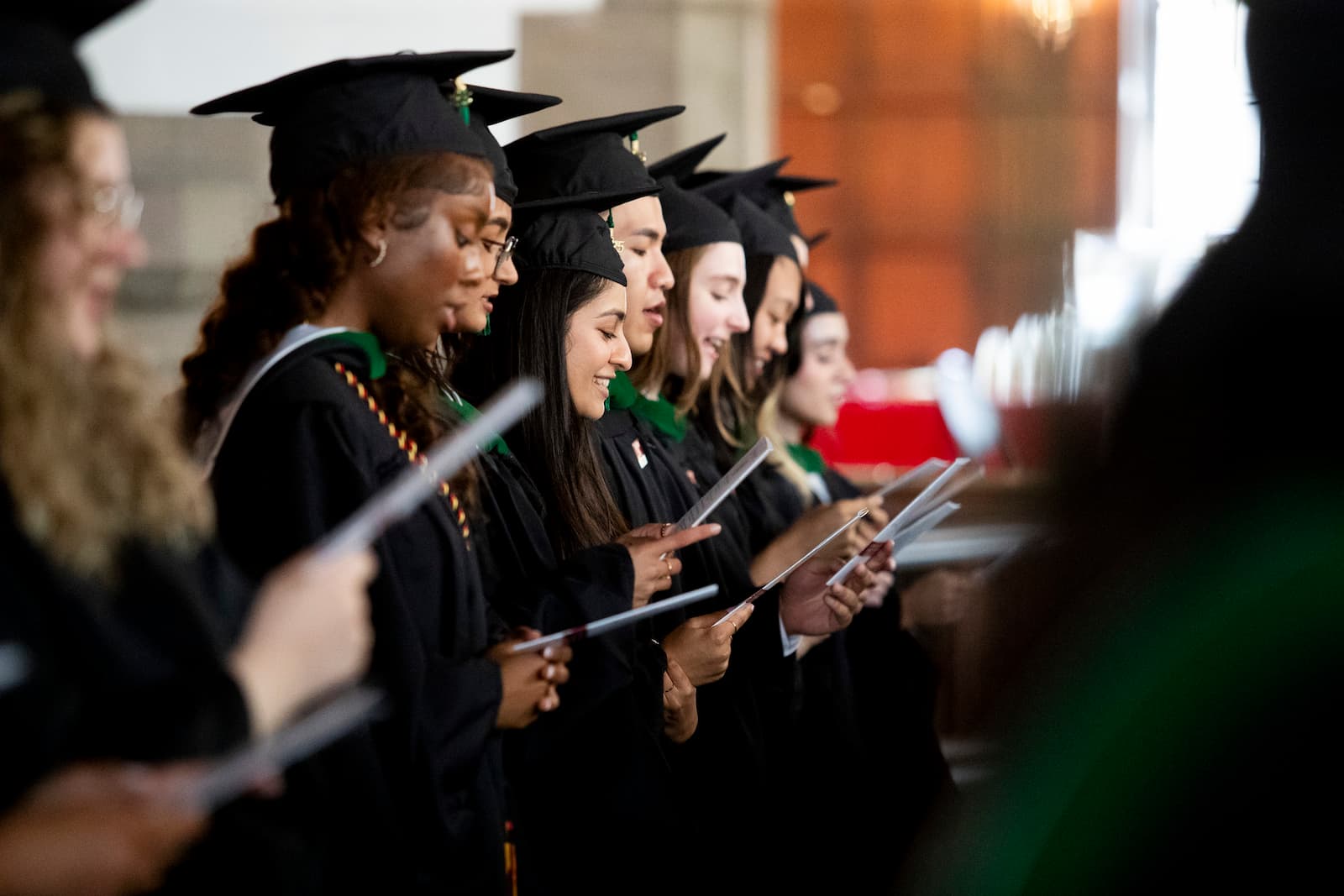Graduation for the Lewis Katz School of Medicine (Katz) Physician Assistant Program is an intimate and cheerful affair. Still, the air horn and bell caught almost everyone by surprise.
The program’s eighth annual ceremony was held July 25 in historic Mitten Hall, at Temple University’s Main Campus. During the portion where the graduates were hooded and presented with their degrees, the names of the 32 members of the Class of 2025 were announced one by one.
“PA school was tough,” Class President Revti Patel, PA, said. “We studied hard, complained a lot – like, a lot – but we also made memories we’ll never forget and friendships we will carry with us for life.”
It can be an all-consuming and, at times, isolating experience. But it also wouldn’t be possible without others, a point that was acknowledged by grateful graduates again and again.
“At the heart of this celebration are our mentors and loved ones – professors, parents and grandparents, siblings, partners, and friends – who have been unwavering in their support for us,” Olivia Chhugani, PA, said in the ceremony’s closing remarks. “We have reached this point with your motivation, understanding, and patience.”
The ceremony’s distinguished speaker, who was chosen by the Class of 2025, speech followed suit. It came across like a dad or trusted uncle casually imparting profound advice on the cusp of a major life transition.
“There will be many challenges ahead in your career,” said Paul Krajewski, MS, PA-C, Adjunct Assistant Professor of Biomedical Education and Data Science. “I urge the graduates to meet these challenges head on and strive to make healthcare a better place by being actively involved as an advocate for your patients and their wellbeing. Don’t ever lose sight of the fact that they are the most important aspect of your professional career.”
He added: “Granted, we can’t change the world of medicine on a grand scale, but there are so many small things we can do on a daily basis that can make a world of difference in your patients’ lives and care. I have no doubt you have already discovered this.”
Amy Lee, PA-C, the Class of 2024 President, provided the graduates with a glimpse into her life as a practicing physician assistant.
“You may experience doubt in this new, uncomfortable season, but know that you’ve been given the best teachings and clinicals here at Temple,” she said, further assuring the graduates that the work will quickly become second nature to them.
Amy J. Goldberg, MD, FACS, The Marjorie Joy Katz Dean, Lewis Katz School of Medicine, reminded the graduates how far they’d come in just 26 months, learning not only medicine but also empathy, a core component of what she calls “the art of medicine,” which itself is an integral facet of a Katz School education. of a Katz School education.
“Every patient is different,” Dr. Goldberg said. “Exposure to differences broadens us, teaches us to think in new ways, to see health through a lens of wider understanding and deeper compassion. Understanding and compassion are the building blocks of communication and trust. And communication and trust create bonds between patients and providers.”
“Strong bonds lead to better health outcomes,” she continued.
While the graduates’ speeches highlighted their shared trials and salvations , Christine Mount, MS, PA-C, Physician Assistant Program Director, named the quality that turned the Class of 2025 into a family.
“Beyond the academics, you learned something more powerful: how to show up for people – even when you’re tired, even when you’re unsure, even when it’s hard,” she said. “That’s the heart of medicine. That’s the heart of being a PA.”
During the ceremony, awards for Academic Excellence, Professional Excellence, and Excellence in Leadership were announced. In addition, two students were inducted into Pi Alpha National PA Honor Society, along with Paul Krajewski, who was chosen by his colleagues as an honorary inductee.
As licensing exams approach and the uncertainty of future careers linger, Michael Nguyen, PA, reflected on a phrase that had carried the class through some of their toughest moments: “nobody cares.”
It started as a lighthearted inside joke during their earliest days dissecting cadavers and quickly became a shared source of strength. Yes, there were times when people did care, like the unforgettable moment someone dropped an instrument in the operating room, but those were the exception.
More often, the phrase reminded them not to sweat the small stuff. “That phrase became a funny reminder that we could get through anything,” Nguyen said. “That, if we could laugh, we could keep going. And we did.”

